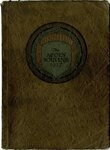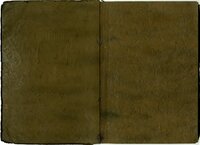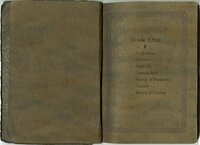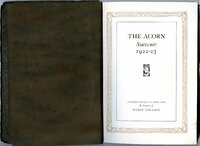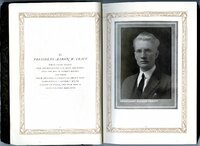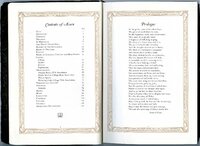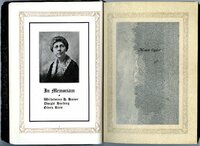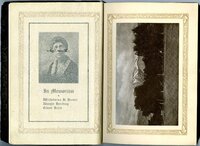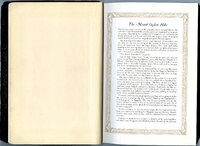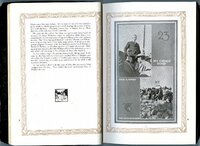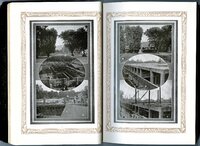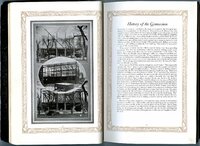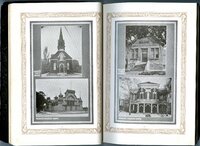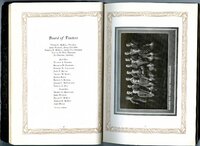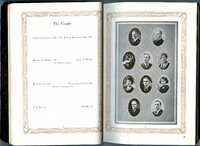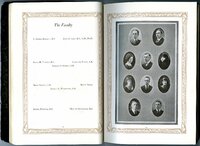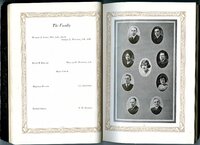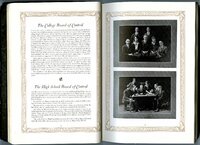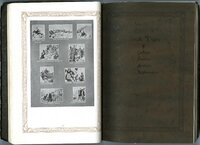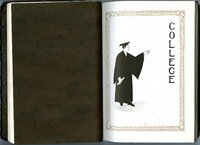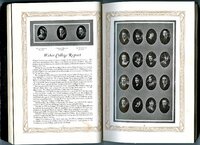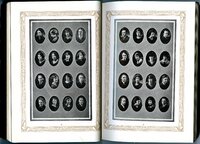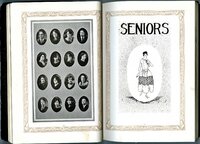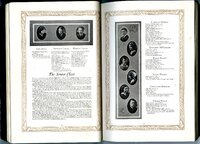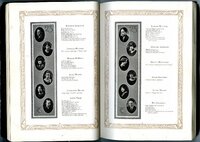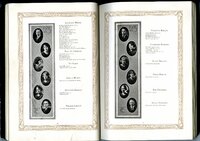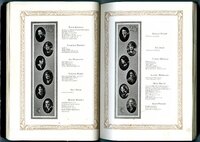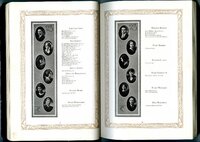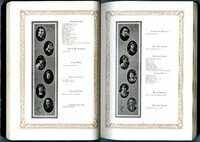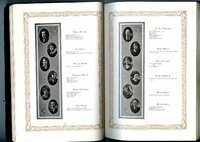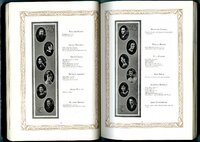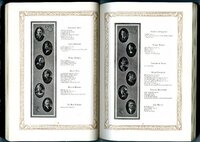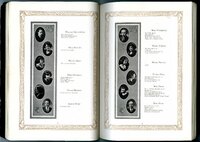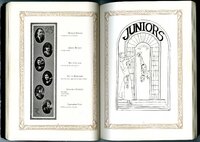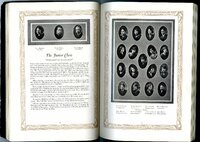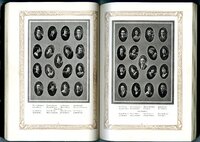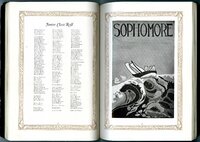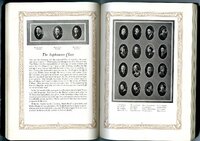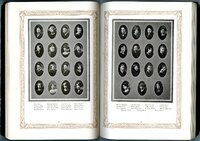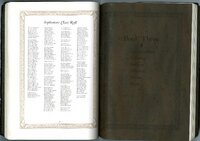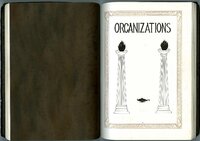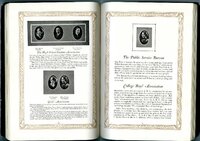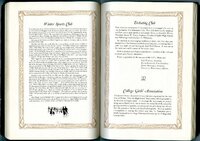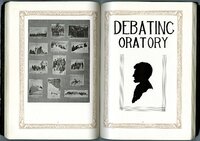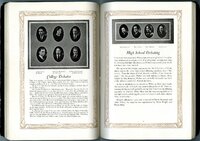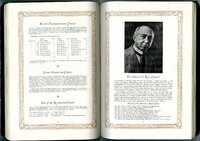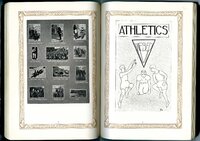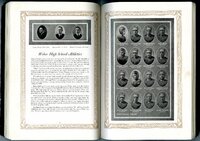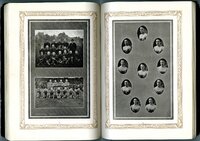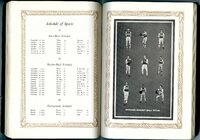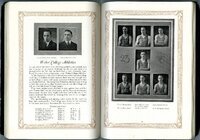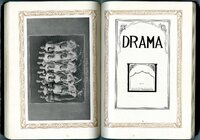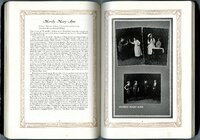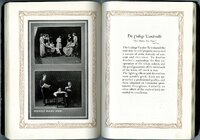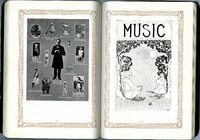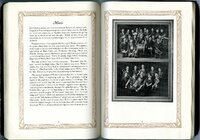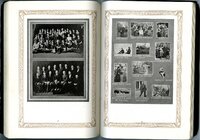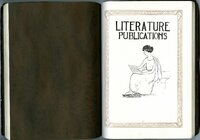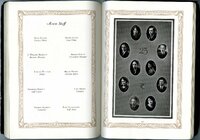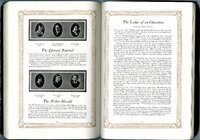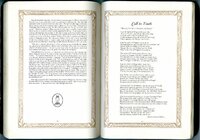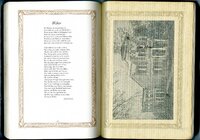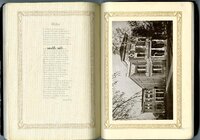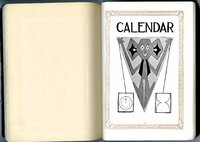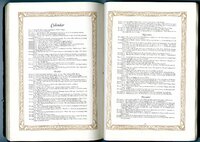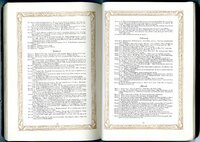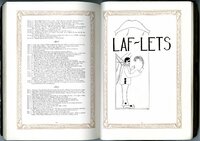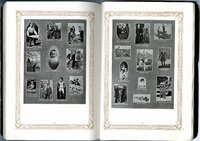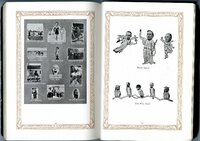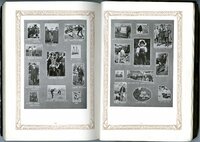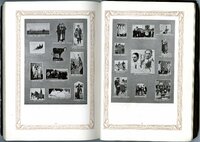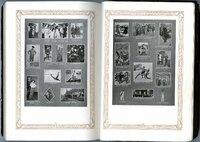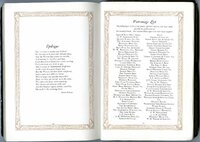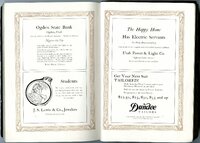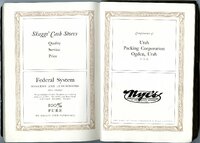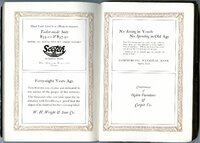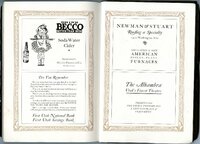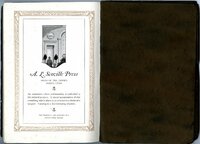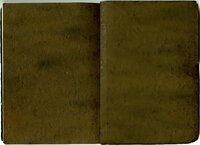| Title |
1923 The Acorn Souvenir |
| Creator |
Weber College |
| Description |
A collection of yearbooks from Weber Normal College which comprise the years 1919 to 1923. Included in the yearbook are photographs of students, class officers, faculty, the Board of Trustees, athletics, and departments within the college. It also contains sections about the clubs and organizations within the Academy, literary pages, student poetry, and advertisements from local businesses. 1922-23 edition published by Weber College. |
| Subject |
Student activities; Advertising; Athletics; State boards of education; Calendar; Clubs; Education, Secondary; Faculty; Forms, Literary; Obituaries; Ogden (Utah); Students; Weber Normal; Yearbooks |
| Digital Publisher |
Stewart Library, Weber State University, Ogden, Utah, USA |
| Date Original |
1923 |
| Date |
1923 |
| Date Digital |
2008 |
| Temporal Coverage |
1905; 1906; 1907; 1908; 1909; 1910; 1911; 1912; 1913; 1914; 1915; 1916; 1917; 1918; 1919; 1920; 1921; 1922; 1923; 1924; 1925; 1926; 1927; 1928; 1929; 1930; 1931; 1932; 1933; 1934; 1935; 1936; 1937; 1938; 1939; 1940; 1941; 1942; 1943; 1944; 1945; 1946; 1947; 1948; 1949; 1950; 1951; 1952; 1953; 1954; 1955; 1956; 1957; 1958; 1959; 1960; 1961; 1962; 1963; 1964; 1965; 1966; 1967; 1968; 1969; 1970; 1971; 1972; 1973; 1974; 1975; 1976; 1977; 1978; 1979; 1980; 1981; 1982 |
| Item Size |
10.5x7.75 inch |
| Medium |
yearbooks |
| Item Description |
Dark brown paperback with an image of an acorn and the words "The Acorn Souvenir 1923" on the front. It contains 128 numbered pages, followed by eight pages of advertisements. |
| Spatial Coverage |
Weber County, Utah, United States, http://sws.geonames.org/5784440 |
| Type |
Text; Image/StillImage |
| Conversion Specifications |
TIFF images were scanned with an Epson Expression 100000XL scanner. JPG and PDF files were then created for general use. |
| Language |
eng |
| Rights |
Public Domain. Courtesy of University Archives, Stewart Library, Weber State University |
| Source |
LD 5893.W55 A24 1923 Weber State University Archives |
| Format |
application/pdf |
| ARK |
ark:/87278/s6kxahy7 |
| Setname |
wsu_year |
| ID |
106233 |
| Reference URL |
https://digital.weber.edu/ark:/87278/s6kxahy7 |
| Title |
1923 The Acorn Souvenir - 1923_052_page90&91 |
| Description |
A collection of yearbooks from Weber Normal College which comprise the years 1919 to 1923. Included in the yearbook are photographs of students, class officers, faculty, the Board of Trustees, athletics, and departments within the college. It also contains sections about the clubs and organizations within the Academy, literary pages, student poetry, and advertisements from local businesses. 1922-23 edition published by Weber College. |
| Subject |
Student activities; Advertising; Athletics; State boards of education; Calendar; Clubs; Education, Secondary; Faculty; Forms, Literary; Obituaries; Ogden (Utah); Students; Weber Normal; Yearbooks |
| Date Original |
1923 |
| Date |
1923 |
| Type |
Text |
| Conversion Specifications |
Archived TIFF images were scanned at 400 dpi with an Epson Expression 10000XL scanner. JPG and PDF files were then created for general use. |
| Rights |
Public Domain. Courtesy of University Archives, Stewart Library, Weber State University |
| Format |
application/pdf |
| Setname |
wsu_year |
| ID |
110585 |
| Reference URL |
https://digital.weber.edu/ark:/87278/s6kxahy7/110585 |

